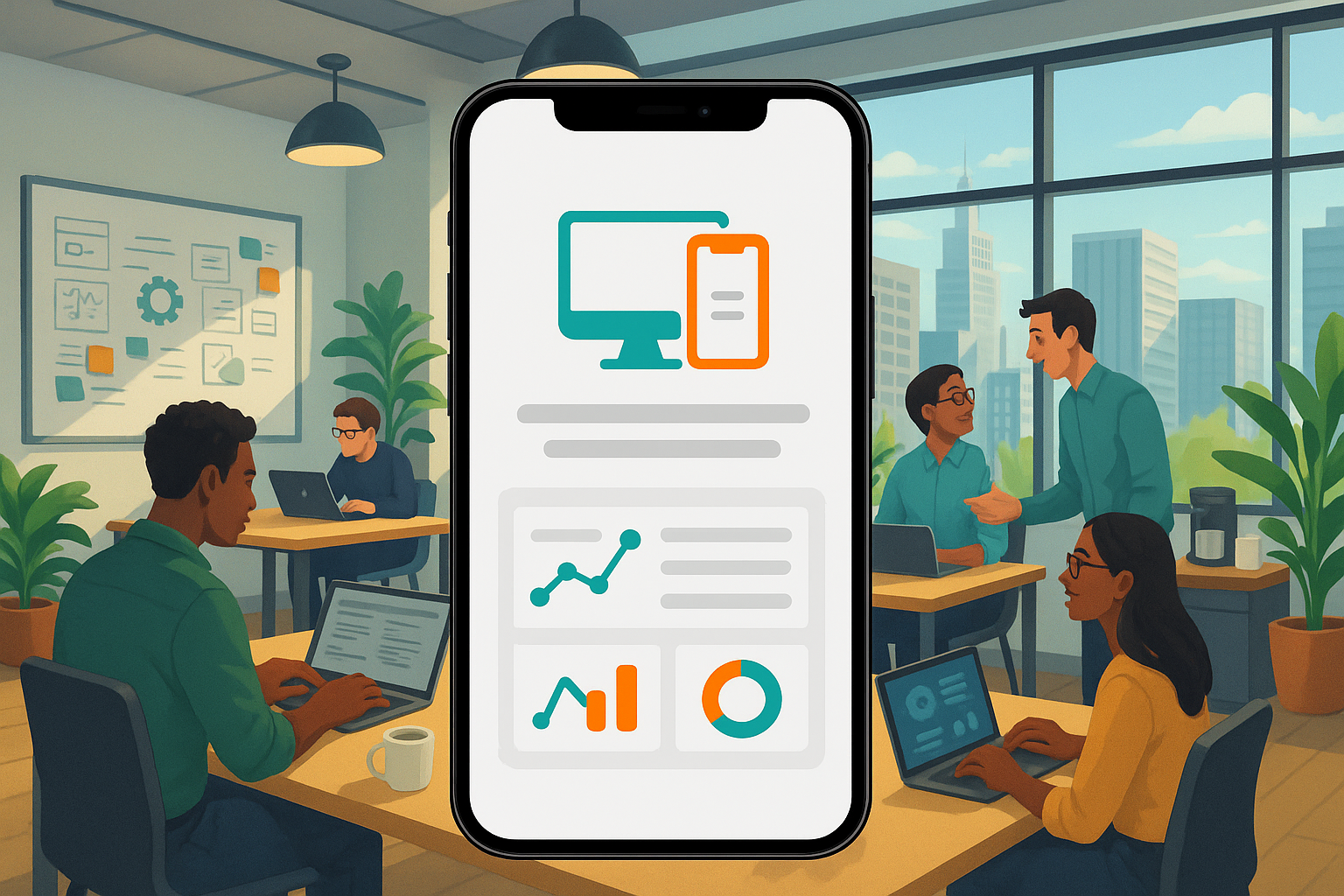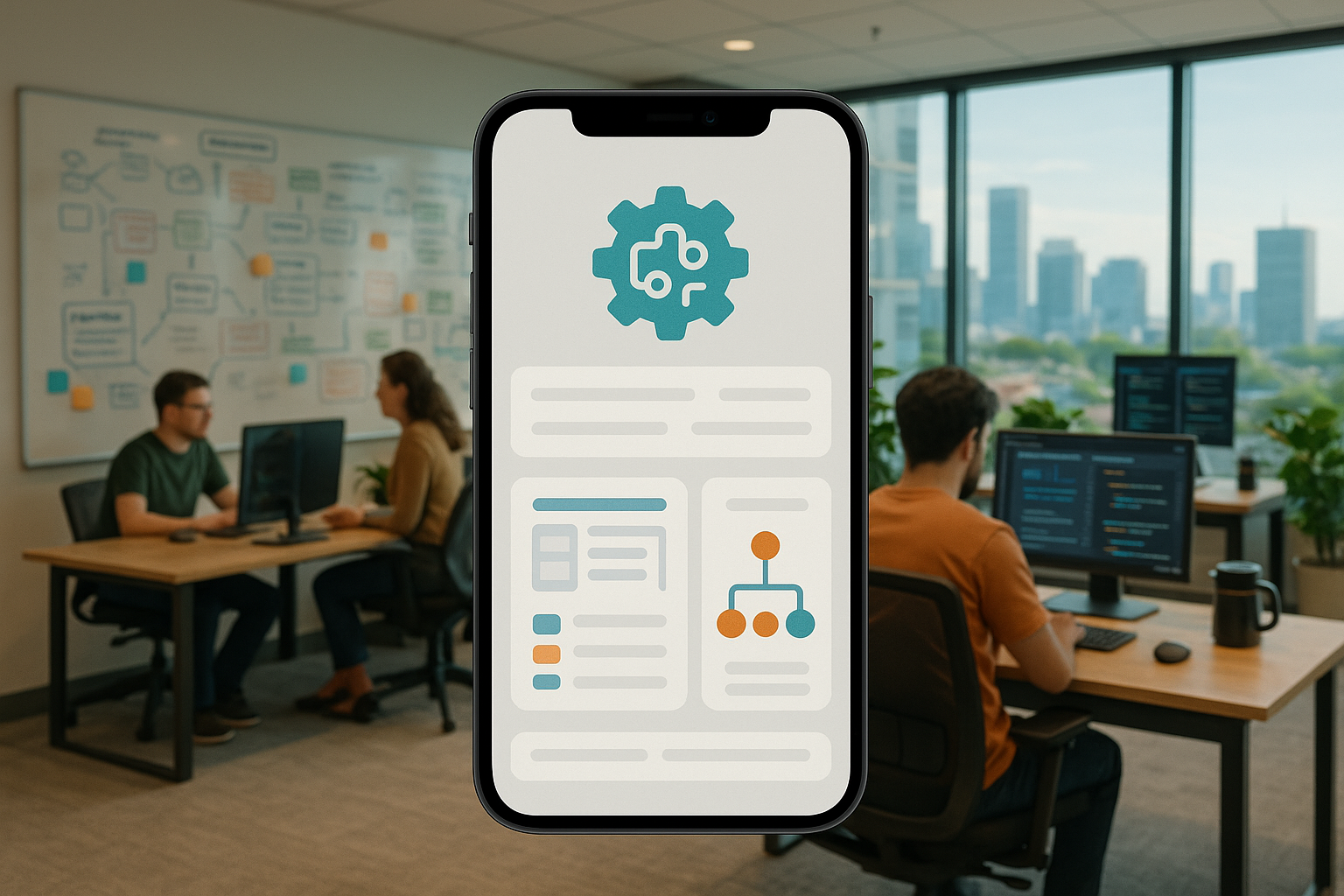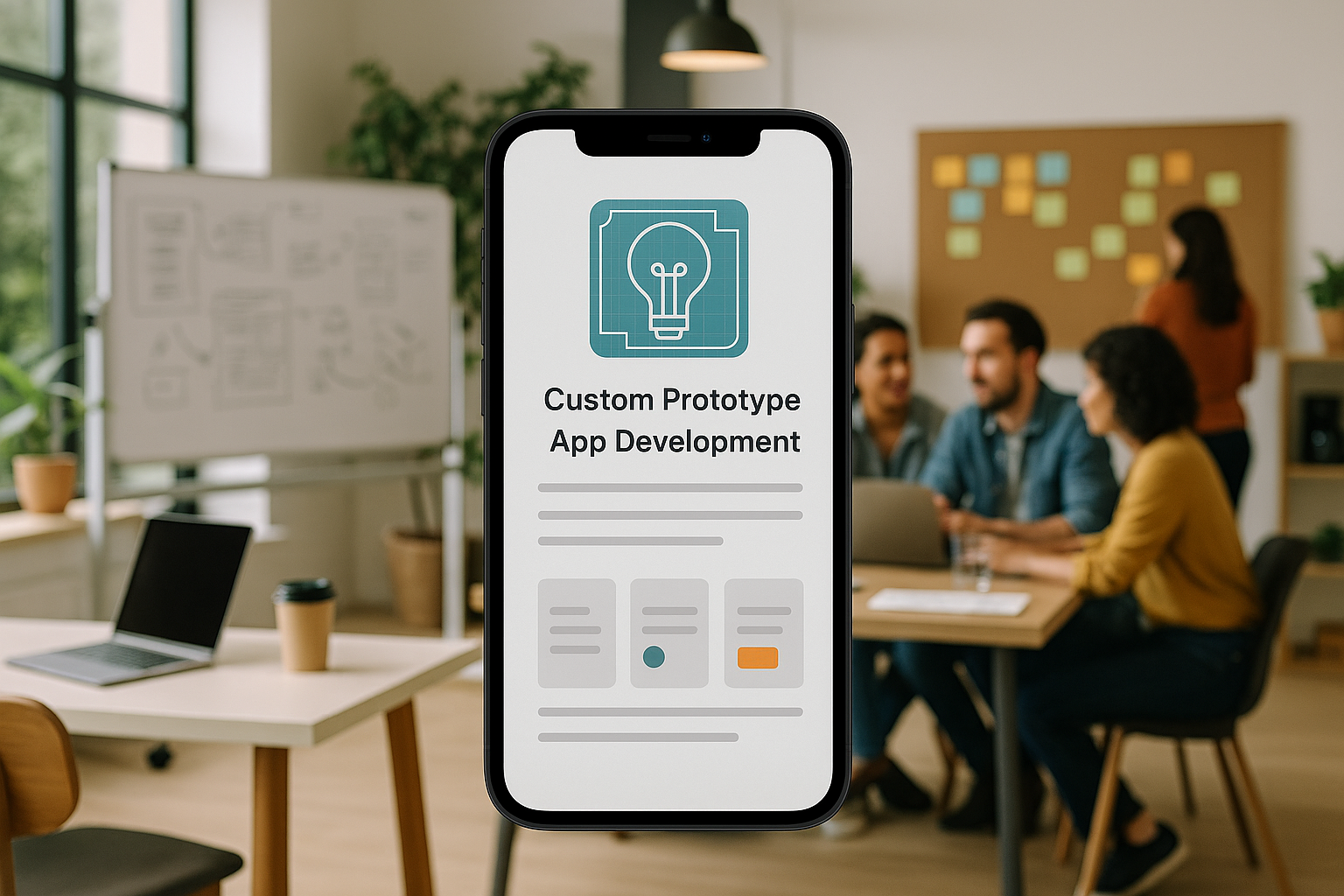Introduction
In today’s digital ecosystem, the line between the web and mobile applications is blurring. Users demand fast, reliable, and engaging experiences regardless of their device or network conditions. While native mobile apps offer rich functionality, they come with the significant friction of app store discovery, downloads, and mandatory updates. Conversely, traditional websites are universally accessible but often lack the immersive features and performance of their native counterparts. This creates a challenging dilemma for businesses: how do you deliver an app-like experience with the reach and accessibility of the web?
The answer lies in Progressive Web Apps (PWAs), a transformative approach to web development that delivers the best of both worlds. However, building a PWA that is truly performant, secure, and feature-rich is a complex undertaking fraught with technical hurdles. From mastering service workers for offline capabilities to ensuring cross-browser compatibility and optimizing for lightning-fast load times, the development process requires a level of expertise that most in-house teams do not possess.
This article serves as a comprehensive guide to custom Progressive Web App development. We will explore what a PWA is, dissect the significant challenges of building one internally, and explain why a custom development approach is critical for success. We will also provide cost estimates and identify top development partners who can turn your vision into a reality. As a leading US AI-powered app development firm, we at MetaCTO have over two decades of experience launching sophisticated applications. We will share our insights on how to navigate this landscape and build a PWA that not only meets user expectations but also drives tangible business growth.
What is a Progressive Web App (PWA)?
A Progressive Web App is not a specific technology or framework; rather, it is a development philosophy and set of web standards aimed at creating web applications that behave and feel like native mobile apps. Coined by Google engineers in 2015, the term describes apps that are built using common web technologies—HTML, CSS, and JavaScript—but are enhanced with modern browser APIs to deliver superior capability, reliability, and installability.
To truly understand what makes an application a PWA, we must examine its three core pillars:
1. Reliable
A PWA must be dependable, loading instantly and functioning consistently, even on unreliable networks or when completely offline. This is arguably the most defining feature of a PWA and is achieved primarily through a browser script called a service worker.
A service worker runs in the background, separate from the web page, and acts as a programmable network proxy. It can intercept and handle network requests, manage a cache of assets, and deliver push notifications. By intelligently caching the app’s shell (the user interface) and dynamic content, a service worker can serve a complete, functional user experience from the cache when the network is unavailable. This eliminates the dreaded “dinosaur game” in Chrome and ensures users can continue to interact with content they have previously viewed, providing a seamless and reliable experience that builds user trust.
2. Capable
Modern PWAs can do much more than a traditional website. Thanks to an ever-expanding suite of Web APIs, they can access device features that were once exclusive to native applications. This includes:
- Push Notifications: Engage users with timely, relevant updates even when the browser is not open.
- Background Sync: Defer network actions, like sending a message or uploading a photo, until the user has a stable connection. The action is queued in the background and executed automatically, improving the user experience on flaky networks.
- Hardware Access: Depending on the browser and operating system, PWAs can access features like the camera, microphone, geolocation, and device sensors.
This enhanced capability allows for the creation of rich, immersive applications that can handle complex tasks without forcing the user into a native app environment.
3. Installable
A PWA lives on the web but can be “installed” on a user’s home screen, launcher, or dock with a single tap, just like a native app. This is facilitated by a Web App Manifest, a simple JSON file that tells the browser about the application, including its name, icons for the home screen, and the start URL.
When a user frequently engages with a PWA, the browser will proactively prompt them to add it to their home screen. Once installed, the PWA launches in its own sandboxed, full-screen window, without the browser’s address bar or navigation controls. This creates a deeply integrated, app-like feel, reinforcing the brand and encouraging repeated engagement. Crucially, this entire process bypasses the traditional app store, removing a major point of friction in the user acquisition funnel.
| Feature | Responsive Website | Progressive Web App (PWA) | Native App |
|---|---|---|---|
| Accessibility | URL-based, any browser | URL-based, any modern browser | App Store download required |
| Offline Functionality | None (shows error page) | Yes (via Service Workers) | Yes (built-in) |
| Push Notifications | No | Yes | Yes |
| Home Screen Icon | No (bookmark only) | Yes (installable) | Yes |
| Performance | Variable | Fast, app-like shell loading | Generally high performance |
| Updates | Automatic (on server) | Automatic, seamless updates | Manual user updates via App Store |
| Development Cost | Low | Medium | High |
| Security | Standard HTTPS | HTTPS required | Platform-specific security |
Reasons Why PWA Development is Difficult In-House
While the benefits of PWAs are compelling, the path to building a high-quality one is paved with technical complexities that can overwhelm even experienced web development teams. Attempting this in-house without specialized expertise often leads to underperforming apps, budget overruns, and missed deadlines. Here are the primary reasons why PWA development is so challenging.
The Steep Learning Curve of Service Workers
Service workers are the engine of a PWA, but they are notoriously difficult to master. Their lifecycle—which includes registration, installation, activation, and fetching—is complex and asynchronous. Developers must manage this lifecycle carefully to avoid bugs that can be incredibly hard to debug. A misconfigured service worker can lead to a state where the app serves stale content indefinitely, breaking the user experience in a way that is difficult for both the developer and the user to resolve. Implementing robust caching strategies (e.g., cache-first, network-first, stale-while-revalidate) requires a deep understanding of HTTP caching, network protocols, and the specific needs of the application.
Ensuring Cross-Browser and Cross-Platform Consistency
The promise of PWAs is a “write once, run anywhere” solution, but the reality is more nuanced. While core PWA features are widely supported, the availability of advanced APIs can vary significantly between browsers (Chrome, Safari, Firefox, Edge) and operating systems (Android, iOS, Windows, macOS).
Apple’s Safari on iOS, in particular, has been slower to adopt certain PWA standards. For example, push notifications for PWAs on iOS were only recently introduced and still have limitations compared to their Android counterparts. Ensuring a consistent and graceful degradation of features across all target platforms is a significant engineering challenge. It requires extensive testing, conditional logic, and a strategic approach to feature implementation, which an in-house team may not be equipped to handle.
Performance Optimization is Non-Negotiable
A core tenet of a PWA is that it must be fast. Users expect an instantaneous, app-like response. Achieving this level of performance requires a rigorous and multi-faceted optimization strategy that goes far beyond standard website best practices. This includes:
- The PRPL Pattern: A development pattern that stands for Push critical resources, Render the initial route, Pre-cache remaining routes, and Lazy-load non-critical assets. Implementing this effectively requires sophisticated build tools and architectural planning.
- Performance Budgets: Setting and enforcing strict budgets for metrics like Time to Interactive (TTI), First Contentful Paint (FCP), and total JavaScript bundle size.
- Code Splitting and Tree Shaking: Breaking down the application’s code into smaller chunks that are loaded on demand, ensuring the user only downloads what is necessary for the current view.
These techniques demand specialized skills in front-end architecture and performance engineering, skills that are often in short supply.
Security and Data Management Complexities
Because PWAs can handle sensitive user data and operate offline, security is paramount. Service workers, if not implemented correctly, can become a vector for attacks like man-in-the-middle. All traffic must be served over HTTPS, which is a baseline requirement. Furthermore, managing offline data storage using APIs like IndexedDB requires careful planning to ensure data integrity, synchronization, and security. An in-house team without a dedicated security expert may inadvertently introduce vulnerabilities that compromise user data and trust.
Why Custom App Development is Essential for a PWA
Given the challenges, it becomes clear that a generic, template-based approach is insufficient for creating a truly effective PWA. Off-the-shelf solutions and website builders may offer a “PWA mode,” but these often provide only a superficial implementation that fails to deliver on the core promises of performance and reliability. To build a PWA that serves as a cornerstone of your digital strategy, a custom development approach is essential.
A Tailored and Optimized User Experience
Your business is unique, and your application’s user experience should reflect that. Custom PWA development allows for a UI/UX design process that is tailored specifically to your brand identity, target audience, and business goals. A dedicated partner like MetaCTO can conduct in-depth user research and create intuitive workflows that drive engagement and conversions. This level of customization ensures that every interaction feels intentional and polished, setting your PWA apart from generic competitors. It allows for the creation of a truly seamless journey, from discovery on the web to installation on the home screen.
Scalable Architecture Built for Growth
A custom-built PWA is designed with your future in mind. An experienced development agency will architect the application’s front-end and back-end systems to be scalable, maintainable, and extensible. This means that as your user base grows and your feature requirements evolve, the application can adapt without requiring a complete rewrite. At MetaCTO, we leverage our 20+ years of experience to build robust architectures that can handle millions of users and complex data loads, ensuring your PWA is a long-term asset, not a short-term fix.
Seamless Integration with Your Business Ecosystem
Your PWA does not exist in a vacuum. It needs to integrate with your existing systems, such as CRMs, ERPs, payment gateways, and third-party APIs. Custom development provides the flexibility to build bespoke integrations that ensure smooth data flow and automation across your entire technology stack. This is critical for creating a cohesive customer experience and streamlining your internal operations. Whether you need to sync user data with Salesforce or process payments through Stripe, a custom solution ensures these connections are secure, reliable, and efficient.
Unlocking a Competitive Advantage
In a crowded market, a superior user experience is a powerful differentiator. A custom PWA that is faster, more reliable, and more feature-rich than your competitors’ offerings can significantly impact user acquisition and retention. By investing in a custom solution, you are not just building an application; you are crafting a strategic tool that can capture market share and build lasting brand loyalty. Partnering with experts in AI development can further enhance this advantage by integrating intelligent features like personalization engines or predictive analytics directly into your PWA.
Cost Estimate for Developing a Progressive Web App
Determining the exact cost of a custom PWA without a detailed scope is impossible, as the price is directly tied to the project’s complexity, feature set, and design requirements. However, we can provide general estimates based on common project tiers to help you budget accordingly. These figures represent typical agency costs for a full development lifecycle, from discovery to launch.
Simple PWA (MVP)
- Estimated Cost: $25,000 - $50,000
- Timeline: 2-3 months
- Features: This tier is ideal for a Minimum Viable Product (MVP) or a content-focused application. It typically includes a custom UI/UX for a few key screens, basic offline caching for the app shell and static content, a home screen install prompt, and integration with a simple CMS or existing APIs. The focus is on launching a core, reliable experience quickly. Our rapid MVP development service is designed to deliver this level of product efficiently.
Medium Complexity PWA
- Estimated Cost: $50,000 - $120,000
- Timeline: 4-6 months
- Features: This category covers more sophisticated applications, such as e-commerce storefronts, social platforms, or booking systems. It includes everything in the simple tier, plus features like user authentication, secure payment gateway integration, push notifications, advanced offline capabilities (e.g., saving form data or shopping carts offline), and a custom back-end or more complex API integrations.
Complex Enterprise PWA
- Estimated Cost: $120,000+
- Timeline: 6+ months
- Features: This tier is for large-scale, enterprise-grade applications with extensive custom functionality. This could include real-time data synchronization, complex administrative dashboards, multi-language support, advanced security and compliance requirements (e.g., HIPAA), third-party integrations with multiple systems, and potentially AI-powered features for personalization or data analysis. These projects require a senior development team, rigorous quality assurance, and ongoing strategic oversight, often benefiting from services like a Fractional CTO to guide the technical vision.
Several factors influence where a project falls within these ranges:
- Design Complexity: A highly custom, animation-heavy UI will cost more than a simpler, more conventional design.
- Backend Development: Building a custom backend from scratch is more expensive than integrating with existing APIs.
- Third-Party Integrations: Each integration adds complexity and cost.
- Team Location: Development rates vary significantly by geographic location.
Top Progressive Web App (PWA) Development Companies
Choosing the right development partner is the most critical decision you will make in your PWA journey. An expert agency brings not only technical skill but also strategic guidance to ensure your project succeeds. Here are some of the top companies in the space.
1. MetaCTO
As a premier US-based development firm, we at MetaCTO specialize in building high-performance custom applications, including sophisticated PWAs. With over 20 years of experience and more than 100 successful apps launched, we combine deep technical expertise with a strategic, business-first approach. Our 5.0-star rating on Clutch and a portfolio of trusted brands reflect our commitment to excellence.
What sets us apart is our holistic view of the app lifecycle. We are more than just developers; we are product strategists who help you build, grow, and monetize your application. Our end-to-end mobile app development services encompass everything from initial discovery and UI/UX design to robust backend engineering, AI integration, and post-launch app growth strategies. We don’t just build your PWA; we partner with you to make it a success. Our expertise in AI allows us to build intelligent PWAs with features like recommendation engines and chatbots that create a truly personalized and engaging user experience.
2. Google Developers Agency Program
This is not a single company but a curated list of agencies certified by Google for their excellence in building modern web and mobile experiences. Agencies in this program have demonstrated a high level of proficiency in technologies like PWAs, Flutter, and Angular. Working with a Google-certified partner provides a strong assurance of quality and adherence to best practices.
3. Monterail
Based in Poland, Monterail is a well-regarded software development company with a strong focus on JavaScript technologies. They have extensive experience building PWAs for a diverse range of clients, from startups to enterprises. Their portfolio showcases a deep understanding of modern front-end frameworks like Vue.js and React, which are commonly used for PWA development.
4. Intellectsoft
Intellectsoft is a global software engineering company that offers a wide range of services, including mobile and web development. They have a dedicated practice for PWA development and have delivered solutions for clients in industries like hospitality, logistics, and fintech. Their large, distributed team allows them to scale resources to meet the demands of complex enterprise projects.
Conclusion
The journey to a successful Progressive Web App is both exciting and challenging. PWAs represent the future of the web, offering a powerful way to deliver fast, reliable, and engaging experiences that bridge the gap between websites and native apps. They provide the reach of the web with the functionality of mobile, all without the friction of an app store.
Throughout this guide, we have explored the core components of a PWA, from the reliability enabled by service workers to the seamless experience of home screen installation. We’ve also delved into the significant technical hurdles of in-house development—the complexities of service workers, cross-browser compatibility, and rigorous performance optimization—that make partnering with a specialized agency not just a recommendation, but a necessity for success. A custom development approach is the only way to build a PWA that is truly tailored to your brand, scalable for future growth, and capable of providing a distinct competitive advantage.
By understanding the factors that influence development costs and identifying expert partners, you can approach your PWA project with confidence. An experienced agency like MetaCTO provides the technical expertise and strategic foresight needed to navigate this complex landscape effectively.
Ready to build a Progressive Web App that drives engagement and growth? Talk with a PWA development expert at MetaCTO today to discuss your vision and create a roadmap for success.






